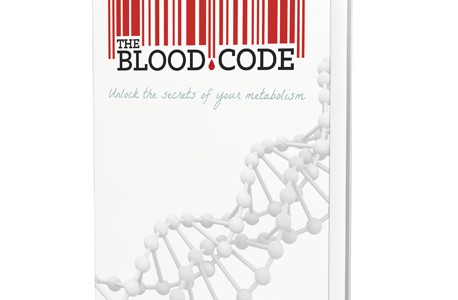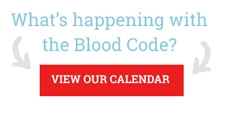I was recently lecturing at a naturopathic medical conference and asked one of my colleagues whether we as a profession are prepared for the news that a person’s response to homeopathic remedy is a placebo response. I rightfully assume that the unique relationship between an empathetic homeopath and a patient that has been heard and cared for creates an effective and amplified placebo response. My colleague stated simply that she doubts we are ready for it, “There are some doctors that that are pretty strong believers”, she added.
People who have seen me over the past twenty years realize that while I am fully trained to apply homeopathy, I do not use it now. My skepticism keeps me rooted in science. Ted Kaptchuk, in 2010 spoke to this question through a wonderfully novel study. He researched the placebo response for irritable bowel syndrome (IBS).
This study, even though it is several years old, needs to be cited again. This was a group of women with significant IBS. One half were given an evaluation, filled in forms, met with doctors and staff and told they were the control group and would receive nothing—30% improvement was seen in this group. Yes, being heard and cared for provides a healing response.
The other half of participants received the same amount of time with the doctors and staff, the same evaluations but they were told that their condition has an emotional basis, and that placebos effectively activate that self-healing response. This group was therefore given a pill bottle that truthfully stated “PLACEBO”. Participants were told to take one placebo tablet twice daily—about 65% of people taking the placebo had substantial improvement in their IBS over the 3-month course of the study.
I wish there had been another arm within the study, one that gave the emotionally suggestive message but no placebo pill. Would people have responded to the suggestion without the smoke and mirrors of placebo (or homeopathic remedy if that had been used). I was a good homeopath I have to admit, but there is no way I cured more than 65% of the time. In fact, most great homeopaths I have studied with bat about 30%. Huh, maybe a better suggestion needs to be practiced when a “remedy” is given.
Why am I dredging up this cool study? We need to be reminded that the placebo response is in our power every minute of every day. Suggestive messages come from our friends, media headlines and from us. If we keep those messages empowering, we have the potential of resolving 2/3 of nearly any problem that faces us. We have the capacity to impact so many hormones and neurotransmitters with suggestion and lifestyle. I suggest all healthcare practitioners remember that how a disease or condition is framed – the suggestion to the patient is of greater importance than a pill in a bottle.
- Kaptchuk TJ. Placebos without Deception: A Randomized Controlled Trial in Irritable Bowel Syndrome. DOI: 10.1371/journal.pone.0015591
Here is an example of Two Ways to Frame Type 2 diabetes
The Disempowered Medical Management Model
“You have type 2 diabetes – a degenerative condition where your body produces inadequate insulin over time and sugars elevate causing complications and disease. But fortunately, we have drugs that can manage the diabetes process and lower the risk of disease complications.” [If this sounds good, ask your local hospital for the nearest referral]
The Empowered Message that Provides the Motivation to Cure:
“Given your lifestyle right now, you are expressing insulin resistance so much that it is called type 2 diabetes. You have an efficient storage metabolism and are well-prepared for a strenuous world with few available dietary starches. I can help you find a way to live in accordance with your exceptional and perfect ancestral trait.” [If this rings true, get The Blood Code and Read-on]




If we are to conclude that homeopathy is entirely placebo, then we must also acknowledge that many of the conventional treatments may have more to do with a caring researcher than the potency of their pills. In the NYT January piece (https://www.nytimes.com/2014/01/21/science/new-truths-that-only-one-can-see.html?_r=1) Amgen researchers were unable to replicate 47 of 53 landmark pharmaceutical cancer studies. These were not peripheral studies, but major studies upon which cancer treatments are based. And the researchers had the help of the original study participants, but still could not get the same results. So if we conclude that medical research itself has become flawed, homeopathy certainly gets grouped into that and is as placebo as the rest of our treatments.
The argument against homeopathy vs. conventional medication has always been dilution equals nothing. But that has been shown to be a fallacy, a creation of chemistry professors rather than experimental data. A recent study in India (https://timesofindia.indiatimes.com/life-style/health-fitness/health/The-nano-effect-of-homeopathy/articleshow/9580370.cms) showed that metals in homeopathic remedies continued up to the 200c potency, far beyond Avogadro’s number and the point of “dilution to nothing.”
So it may well be that homeopathy is nothing and the practitioners are merely smiling and patting patients on their heads. But it may also be that conventional doctors are also merely smiling, patting patients on their heads, and injecting them with a mustard gas derivative or something similar. In either case, placebo may be the entire effect, if placebo is defined as a good bedside manner.
If placebo is defined as the pill, the concept itself is in question. Does a placebo pill do anything at all? In a landmark meta-analysis that they have replicated three times, in 2001, 2004, and 2010, (https://www.ncbi.nlm.nih.gov/pubmed/20091554) Hróbjartsson and Gøtzsche found that while placebo pill effects vary, they do not have clinically significant effects overall in medicine. We are no longer a naïve population that simply believes our doctor. Pain and nausea, the two symptoms you mention in the IBS study, are the most susceptible to suggestion. But overall, a placebo pill is a poor substitute for active medicine. The 30% placebo response is a fiction, based on studies from the 1950s, and placebo effects tend to fade over an eight week period.
When we look at homeopathy within the context of recent research, we see a context of extended, caring visits. The studies from the U.K. clearly indicate a strong bedside manner provides a dramatic improvement in patient health, often eclipsing any effect of the homeopathic pill itself. But when we reverse the situation, homeopathy in the developing world shows a robust effect, altering the blood levels of those with arsenic poisoning and the mortality rates of pediatric diarrhea. It is in that context, where populations lack a medial infrastructure, that homeopathy is both necessary and effective. There may come a time when the entire world has access to a conventional medical structure and homeopathy is no more than a good bedside manner, but we are not at that place and time.
Chris,
Thanks for the well-thought reply and strong conclusion. The IBS study was truly about amplification of placebo response with an evocative and suggestive message. I would love to have seen this carried for a year – positive effects would certainly have faded.
I think the language of medication outcome needs to be tamed – as clinicians we often give credit where credit is not due. We are not well served believing that “The medication totally cured my pain/stomach problem/ mood/ etc.” In truth, the interaction with a caregiver and subsequent relationship along with time, grace and chance coincided with various behavioral changes, environmental changes and, yes, a remedy or medication – and behold there was a notable symptom change. Too much credit on the pill will lead us away from the real cure that takes place. This is not a homeopathic situation, this is a situation of, as you say, concept.
In the scientific method, it’s fun to leave the door open to chance, you never know what will come in. -RM